Seye Abimbola
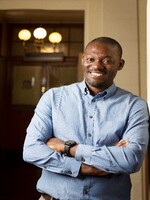 Dr Seye Abimbola is a health systems researcher and a global health scholar. He has worked as a health system practitioner and/or researcher in Nigeria where he completed his medical training at Obafemi Awolowo University, Ile-Ife; in Australia where completed an MPhil in public health and a PhD in health systems at the University of Sydney, and in the United Kingdom where he was a Sidney Sax Overseas Early Career Fellow at the University of Oxford. Dr Abimbola studies community engagement in governance, decentralised governance, and the role of governance in the adoption and scale up of health system innovations. He is a senior lecturer in global health at the University of Sydney in Australia, the editor in chief of BMJ Global Health, and the current (2020-22) Prince Claus Chair in Development and Equity at Utrecht University in the Netherlands where he is focusing on Justice in Global Health Research.
Dr Seye Abimbola is a health systems researcher and a global health scholar. He has worked as a health system practitioner and/or researcher in Nigeria where he completed his medical training at Obafemi Awolowo University, Ile-Ife; in Australia where completed an MPhil in public health and a PhD in health systems at the University of Sydney, and in the United Kingdom where he was a Sidney Sax Overseas Early Career Fellow at the University of Oxford. Dr Abimbola studies community engagement in governance, decentralised governance, and the role of governance in the adoption and scale up of health system innovations. He is a senior lecturer in global health at the University of Sydney in Australia, the editor in chief of BMJ Global Health, and the current (2020-22) Prince Claus Chair in Development and Equity at Utrecht University in the Netherlands where he is focusing on Justice in Global Health Research.
Marine Al Dahdah
 Marine Al Dahdah is a sociologist, a CNRS permanent researcher at the Center for studies of social movements (CEMS-EHESS) & in Unit 1276 "Risks, Violences, Reparation" of the French National health and medical research body (Inserm). She is an associate researcher at Paris University (UParis) and at the Center for Human Sciences (CSH) in Delhi (India). Her research focuses on health policies in Asia and Africa and more particularly of digital health in India, Ghana and Kenya. She recently published "From Evidence-Based to Market-Based Health: Itinerary of a Mobile (for) Development Project", Science, Technology, & Human Values, 21 January 2019, “Between Philanthropy and Big Business: The Rise of MHealth in the Global Health Market”, Development and Change, 28 March 2019. Since 2014, she has worked to achieve international critical recognition of the field of « Digital studies in the Global South », and has recently co-edited a special issue dedicated to this field of expertise in Science, Technology and Society « Technologies without Borders? The Digitization of Society in a Postcolonial World » 25/3, November 2020. More info here : http://cems.ehess.fr/index.php?4479
Marine Al Dahdah is a sociologist, a CNRS permanent researcher at the Center for studies of social movements (CEMS-EHESS) & in Unit 1276 "Risks, Violences, Reparation" of the French National health and medical research body (Inserm). She is an associate researcher at Paris University (UParis) and at the Center for Human Sciences (CSH) in Delhi (India). Her research focuses on health policies in Asia and Africa and more particularly of digital health in India, Ghana and Kenya. She recently published "From Evidence-Based to Market-Based Health: Itinerary of a Mobile (for) Development Project", Science, Technology, & Human Values, 21 January 2019, “Between Philanthropy and Big Business: The Rise of MHealth in the Global Health Market”, Development and Change, 28 March 2019. Since 2014, she has worked to achieve international critical recognition of the field of « Digital studies in the Global South », and has recently co-edited a special issue dedicated to this field of expertise in Science, Technology and Society « Technologies without Borders? The Digitization of Society in a Postcolonial World » 25/3, November 2020. More info here : http://cems.ehess.fr/index.php?4479
Anne-Emanuelle Birn
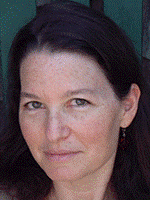
Anne-Emanuelle Birn is Professor of Global Development Studies and of Social and Behavioural Health Sciences (Dalla Lana School of Public Health) at the University of Toronto. Her research explores the history, politics, and political economy of global health, particularly in Latin America. Current projects examine: the history of child health in Uruguay; transnational perspectives on social activism and policy-making during the COVID-19 pandemic; social justice-oriented South-South health cooperation; and the health harms of Canadian extractivism. She has published widely in Latin American, African, Asian, North American, and European journals and presses. Her books include: Marriage of Convenience: Rockefeller International Health and Revolutionary Mexico (Rochester, 2006); Comrades in Health: US Health Internationalists, Abroad and at Home (Rutgers, 2013); Oxford University Press’s Textbook of Global Health (2009; 2017/18); Peripheral Nerve: Health and Medicine in Cold War Latin America (Duke, 2020); and Going Public: The Unmaking and Remaking of Universal Healthcare (Cambridge, 2023). Among other scholar-activist roles, she has served on the Global Steering Council of the People’s Health Movement. A former Canada Research Chair in International Health, she has been recognized among the top 100 Women Leaders in Global Health, and was named to the List of Canadian Women in Global Health. She is the 2023 recipient of the Arthur J. Viseltear Prize for Lifetime Achievement in Public Health History from the American Public Health Association and Columbia University.
Mary F.E. Ebeling
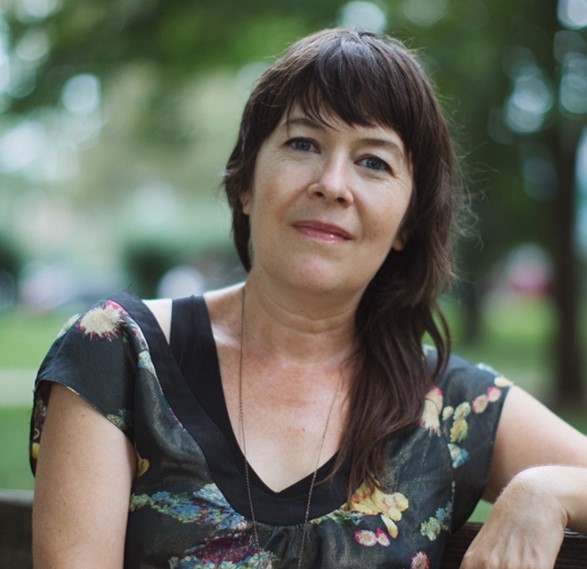 Mary F.E. Ebeling Full Professor in Sociology and affiliate faculty in the Center for Science, Technology and Society, at Drexel University, in Philadelphia, USA. She is a visiting researcher at the Institute for Informatics (I2) at Washington University School of Medicine in St. Louis (Missouri, USA). Her research examines the intersections of gender, race, and digital technologies, data privacy, health marketing and medical capitalism. Her latest book Afterlives of Data: Life and Debt Under Capitalist Surveillance examines data commodification and AI governance in healthcare and consumer finance.
Mary F.E. Ebeling Full Professor in Sociology and affiliate faculty in the Center for Science, Technology and Society, at Drexel University, in Philadelphia, USA. She is a visiting researcher at the Institute for Informatics (I2) at Washington University School of Medicine in St. Louis (Missouri, USA). Her research examines the intersections of gender, race, and digital technologies, data privacy, health marketing and medical capitalism. Her latest book Afterlives of Data: Life and Debt Under Capitalist Surveillance examines data commodification and AI governance in healthcare and consumer finance.
Susan Erikson
 Susan Erikson is a Distinguished Professor in the Faculty of Health Sciences at Simon Fraser University in Vancouver, British Columbia, Canada, and a 2023-24 Mellon Foundation Data Fluencies fellow at the Digital Democracies Institute. A medical anthropologist, she researches highly complex political economy arrangements that shape human health. In earlier research, she anticipated the rise of global health data as a business currency; the change of health data use from accountability to invest-ability; and the failures of smartphone contact tracing apps during pandemics. Her current research analyzes the increasing datafication and financialization of human well-being, focusing on how the techniques of data modeling and AI circumscribe problem solving. Her forthcoming book, Investable! The Dangers of Innovative Pandemic Risk Finance, published by MIT Press, will be out in Fall 2024.
Susan Erikson is a Distinguished Professor in the Faculty of Health Sciences at Simon Fraser University in Vancouver, British Columbia, Canada, and a 2023-24 Mellon Foundation Data Fluencies fellow at the Digital Democracies Institute. A medical anthropologist, she researches highly complex political economy arrangements that shape human health. In earlier research, she anticipated the rise of global health data as a business currency; the change of health data use from accountability to invest-ability; and the failures of smartphone contact tracing apps during pandemics. Her current research analyzes the increasing datafication and financialization of human well-being, focusing on how the techniques of data modeling and AI circumscribe problem solving. Her forthcoming book, Investable! The Dangers of Innovative Pandemic Risk Finance, published by MIT Press, will be out in Fall 2024.
Sakiko Fukuda-Parr

Sakiko is Professor of International Affairs at The New School in New York. She is a development economist who sees development as human development and the realization of human rights. She is interested in the politics of ideas and norms, and currently studies governance by indicators, pandemic responses, intellectual property and decolonization. She has published widely including: When Indicators Fail: SPAR, the Invisible Measure of Pandemic Preparedness, Policy and Society 2022) Fulfilling Economic and Social Rights (coauthord with T. Lawson-Remer and Randolph) that won the Grauweyer Prize for Ideas that Changed the World; Politics of Setting and Measuring the Sustainable Development Goals (special issue of Global Policy co-edited with Desmond McNeill)
Sakiko was member of the 2014 Lancet-University of Oslo Commission on Global Governance for Health. For a decade, she was lead author of the UNDP Human Development Reports and now Chairs the UN Committee for Development Policy. She is Co-Director of The Collective.
Deborah Gleeson
 Deborah Gleeson is an Associate Professor in Public Health at La Trobe University, Australia where she leads the discipline of Health Practice and Management and teaches postgraduate subjects in health policy and health law. Deborah's research focuses on public health policy, particularly at national and international levels and the interface between these levels. Her primary interest area is the implications of international trade agreements for public health, pharmaceutical policy and access to medicines. Her 2020 book with Professor Ronald Labonte, Trade Agreements and Public Health, provides an introduction to the topic for health policy makers, researchers and advocates. Deborah holds the honorary role of Co-convenor of the Political Economy of Health Special Interest Group of the Public Health Association of Australia (PHAA). In this capacity, she plays a key role in PHAA's advocacy for healthy trade agreements.
Deborah Gleeson is an Associate Professor in Public Health at La Trobe University, Australia where she leads the discipline of Health Practice and Management and teaches postgraduate subjects in health policy and health law. Deborah's research focuses on public health policy, particularly at national and international levels and the interface between these levels. Her primary interest area is the implications of international trade agreements for public health, pharmaceutical policy and access to medicines. Her 2020 book with Professor Ronald Labonte, Trade Agreements and Public Health, provides an introduction to the topic for health policy makers, researchers and advocates. Deborah holds the honorary role of Co-convenor of the Political Economy of Health Special Interest Group of the Public Health Association of Australia (PHAA). In this capacity, she plays a key role in PHAA's advocacy for healthy trade agreements.
Naoki Ikegami
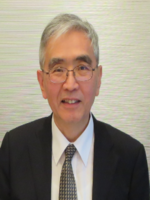 Naoki Ikegami M.D., Ph.D., M.A., is Professor Emeritus at Keio University, Tokyo, and Adjunct Professor, Kurume University, Kurume. He was Chair of the Department of Health Policy and Management at the Keio School of Medicine, from which he received his MD and PhD, and Professor at St Luke’s International University School of Public Health (2016~21). He also received a Master of Arts degree in health services studies with Distinction from Leeds University (United Kingdom). During 1990-1991, he was a visiting professor at the University of Pennsylvania’s Wharton School and Medical School, and has continued to be a Senior Fellow at Wharton. He is a founding member of interRAI (a non-profit international consortium of researchers and clinicians focused on care planning instruments), and served as a consultant to the WHO and the World Bank. He has been President of the Japan Society of Healthcare Administration and of the Japan Health Economics Association.
Naoki Ikegami M.D., Ph.D., M.A., is Professor Emeritus at Keio University, Tokyo, and Adjunct Professor, Kurume University, Kurume. He was Chair of the Department of Health Policy and Management at the Keio School of Medicine, from which he received his MD and PhD, and Professor at St Luke’s International University School of Public Health (2016~21). He also received a Master of Arts degree in health services studies with Distinction from Leeds University (United Kingdom). During 1990-1991, he was a visiting professor at the University of Pennsylvania’s Wharton School and Medical School, and has continued to be a Senior Fellow at Wharton. He is a founding member of interRAI (a non-profit international consortium of researchers and clinicians focused on care planning instruments), and served as a consultant to the WHO and the World Bank. He has been President of the Japan Society of Healthcare Administration and of the Japan Health Economics Association.
He has sat on various national and state government committees, including the Chair of the Investigative Specialist Sub-committee on Case-mix Based Reimbursement for Chronic Inpatient Care and member of the Reforming Elder Healthcare Council and of the End-of-Life Health Care Council. His research areas are health policy, long-term care and pharmacoeconomics. His publications include “The Art of Balance in Health Policy - Maintaining Japan’s Low-Cost Egalitarian System” (Cambridge University Press, 1998) with John C. Campbell, “Japanese universal health coverage: evolution, achievement, and challenges” (lead author) (Lancet, 2011), “Universal Coverage for Inclusive and Sustainable Development: Lessons from Japan” (editor) (World Bank, 2014), “Financing long-term care systems: Lessons from Japan (Int. J Health Policy Management, 2019).
Nora Kenworthy
 Nora Kenworthy is an Associate Professor in the School of Nursing and Health Studies at the University of Washington, Bothell, and Adjunct Assistant Professor in the Departments of Global Health and Anthropology at the University of Washington, Seattle. Her research explores the politics of global health governance, the sociopolitical impacts of HIV initiatives in southern Africa, and the changing roles of corporations in shaping health policy in the US and abroad. She is the author of Mistreated: The Political Consequences of the Fight Against AIDS in Lesotho (2017, Vanderbilt University Press).
Nora Kenworthy is an Associate Professor in the School of Nursing and Health Studies at the University of Washington, Bothell, and Adjunct Assistant Professor in the Departments of Global Health and Anthropology at the University of Washington, Seattle. Her research explores the politics of global health governance, the sociopolitical impacts of HIV initiatives in southern Africa, and the changing roles of corporations in shaping health policy in the US and abroad. She is the author of Mistreated: The Political Consequences of the Fight Against AIDS in Lesotho (2017, Vanderbilt University Press).
She also co-edited the volumes Case Studies in Corporations and Global Health Governance: Impacts, Influence, and Accountability (2016, Rowman & Littlefield) and HIV Scale-up and the Politics of Global Health (2015, Routledge). Her work has been published in such journals as Social Science and Medicine, PLOS One, Medical Anthropology Quarterly, Global Public Health, Globalization and Health, Medicine, Anthropology, Theory and Women’s Studies Quarterly. Nora’s more recent research looks at implications of the use of crowdfunding and other digital technologies to cover essential healthcare costs in the US and globally. She holds a PhD in Sociomedical Sciences from Columbia University.
Ramya Kumar
 Ramya Kumar is Senior Lecturer attached to the Department of Community and Family Medicine, Faculty of Medicine, University of Jaffna, Sri Lanka. Her training is in medicine and public health. Ramya’s research interests include access to healthcare, universal health coverage, the politics of global health, decolonizing global health, women’s health, and the application of critical feminist methodologies to exploring the social and political determinants of health. She recently completed a post-doctoral fellowship with the United Nations University-International Institute for Global Health in Kuala Lumpur, Malaysia, where her work focused on the accountability of powerful private actors in global health. Ramya has authored several publications on health policy and health reform in Sri Lanka. Her recent work with Anne-Emanuelle Birn, Going Public: The Unmaking and Remaking of Universal Healthcare, explores the corporatisation of universal health coverage and its implications for access. Ramya is also a member of the Kuppi Collective, a group of university teachers committed to protecting free education, advancing critical pedagogy, and strengthening democracy in Sri Lanka. She writes regularly in the media to further her commitments to social medicine and health justice.
Ramya Kumar is Senior Lecturer attached to the Department of Community and Family Medicine, Faculty of Medicine, University of Jaffna, Sri Lanka. Her training is in medicine and public health. Ramya’s research interests include access to healthcare, universal health coverage, the politics of global health, decolonizing global health, women’s health, and the application of critical feminist methodologies to exploring the social and political determinants of health. She recently completed a post-doctoral fellowship with the United Nations University-International Institute for Global Health in Kuala Lumpur, Malaysia, where her work focused on the accountability of powerful private actors in global health. Ramya has authored several publications on health policy and health reform in Sri Lanka. Her recent work with Anne-Emanuelle Birn, Going Public: The Unmaking and Remaking of Universal Healthcare, explores the corporatisation of universal health coverage and its implications for access. Ramya is also a member of the Kuppi Collective, a group of university teachers committed to protecting free education, advancing critical pedagogy, and strengthening democracy in Sri Lanka. She writes regularly in the media to further her commitments to social medicine and health justice.
Ron Labonté
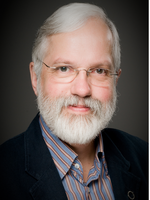 Ronald Labonté (PhD, FCAHS, HonFFPH) is Professor Emeritus in the School of Public Health and Epidemiology, University of Ottawa. He has enjoyed a 45-year career in public health spanning government positions, international consultancies, and universities. For the past 25 years his research has focused on the health equity impacts of diverse globalization processes (he chaired the Globalization Knowledge Network for the WHO CSDH), many of which form the content of his 2019 book, Health Equity in a Globalizing Era (Oxford University Press). He is Editor-in-Chief of the BMC journal, Globalization and Health, active with the People’s Health Movement, a frequent contributor to its flagship publication Global Health Watch, and a co-editor of its forthcoming 6th edition. His most recent work focuses on the global governance of infectious disease and anti-microbial resistance, the political economy of tobacco farming in low- and middle-income countries, and the health impacts of ‘free’ trade and investment treaties. He has worked or consulted widely with UN agencies, including WHO, Unicef, and PAHO, and written critically on the ethical and justice bases of public health practice, and the political economy of global health equity (see https://www.researchgate.net/profile/Ronald_Labonte/research; https://uottawa.academia.edu/RonaldLabonte).
Ronald Labonté (PhD, FCAHS, HonFFPH) is Professor Emeritus in the School of Public Health and Epidemiology, University of Ottawa. He has enjoyed a 45-year career in public health spanning government positions, international consultancies, and universities. For the past 25 years his research has focused on the health equity impacts of diverse globalization processes (he chaired the Globalization Knowledge Network for the WHO CSDH), many of which form the content of his 2019 book, Health Equity in a Globalizing Era (Oxford University Press). He is Editor-in-Chief of the BMC journal, Globalization and Health, active with the People’s Health Movement, a frequent contributor to its flagship publication Global Health Watch, and a co-editor of its forthcoming 6th edition. His most recent work focuses on the global governance of infectious disease and anti-microbial resistance, the political economy of tobacco farming in low- and middle-income countries, and the health impacts of ‘free’ trade and investment treaties. He has worked or consulted widely with UN agencies, including WHO, Unicef, and PAHO, and written critically on the ethical and justice bases of public health practice, and the political economy of global health equity (see https://www.researchgate.net/profile/Ronald_Labonte/research; https://uottawa.academia.edu/RonaldLabonte).
Kelley Lee
 Kelley Lee (MPA, MA, DPhil, FFPH, FCAHS, FRSC) is a Tier 1 Canada Research Chair in Global Health Governance and Professor, Faculty of Health Sciences, Simon Fraser University. She was previously Professor of Global Health Policy at the London School of Hygiene and Tropical Medicine. She has served in several leadership roles including Co-Director of the WHO Collaborating Centre on Global Change and Health, and Chair of the WHO Scientific Resource Group on Globalization, Trade and Health. She is currently co-chairing an Royal Society of Canada-Canadian Academy of Health Sciences Expert Panel on Canada's Role in Global Health; and is a Commissioner on the Lancet PRIME (Pandemic Readiness, Implementation, Monitoring and Evaluation) Commission. She is also serving on the Expert Group and Editorial Board for the WHO Global Report on the Commercial Determinants of Health. Her research focuses on collective action to address transnational health risks in a globalizing world. This includes leading the Pandemics and Borders Project (https://www.pandemics-borders.org/), an international team analysing the use of travel-related measures during the COVID-19 pandemic. Over her career, she has been awarded more than US$25 million in research funding from a broad range of major funders including the NIH, ESRC, ERC, CIHR, WHO, Rockefeller Foundation and Wellcome Trust. She has published 15 books, 250+ papers and 60+ book chapters.
Kelley Lee (MPA, MA, DPhil, FFPH, FCAHS, FRSC) is a Tier 1 Canada Research Chair in Global Health Governance and Professor, Faculty of Health Sciences, Simon Fraser University. She was previously Professor of Global Health Policy at the London School of Hygiene and Tropical Medicine. She has served in several leadership roles including Co-Director of the WHO Collaborating Centre on Global Change and Health, and Chair of the WHO Scientific Resource Group on Globalization, Trade and Health. She is currently co-chairing an Royal Society of Canada-Canadian Academy of Health Sciences Expert Panel on Canada's Role in Global Health; and is a Commissioner on the Lancet PRIME (Pandemic Readiness, Implementation, Monitoring and Evaluation) Commission. She is also serving on the Expert Group and Editorial Board for the WHO Global Report on the Commercial Determinants of Health. Her research focuses on collective action to address transnational health risks in a globalizing world. This includes leading the Pandemics and Borders Project (https://www.pandemics-borders.org/), an international team analysing the use of travel-related measures during the COVID-19 pandemic. Over her career, she has been awarded more than US$25 million in research funding from a broad range of major funders including the NIH, ESRC, ERC, CIHR, WHO, Rockefeller Foundation and Wellcome Trust. She has published 15 books, 250+ papers and 60+ book chapters.
Manjari Mahajan
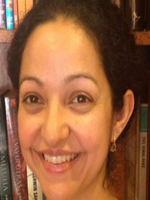 Manjari Mahajan’s work lies at the intersection of Science and Technology Studies, Public Policy, and Anthropology. Her research and teaching are on the topics of global health, philanthrocapitalism, and digital governance. Much of her empirical focus has been on India and South Africa, and more recently, on global organizations such as the Gates Foundation and the World Health Organization.
Manjari Mahajan’s work lies at the intersection of Science and Technology Studies, Public Policy, and Anthropology. Her research and teaching are on the topics of global health, philanthrocapitalism, and digital governance. Much of her empirical focus has been on India and South Africa, and more recently, on global organizations such as the Gates Foundation and the World Health Organization.
Anna Marriott
 Anna leads Oxfam International’s health policy work as part of Oxfam’s inequality campaign and has done so for 14 years. She has written and published a number of reports on Oxfam's focus areas of healthcare for all, including equitable and progressive health financing and critical analyses of the role of the private sector in health care delivery. Anna is leading Oxfam’s health influencing work in response to the Coronavirus Pandemic.
Anna leads Oxfam International’s health policy work as part of Oxfam’s inequality campaign and has done so for 14 years. She has written and published a number of reports on Oxfam's focus areas of healthcare for all, including equitable and progressive health financing and critical analyses of the role of the private sector in health care delivery. Anna is leading Oxfam’s health influencing work in response to the Coronavirus Pandemic.
She holds a Masters degree in Development Studies from the University of KwaZulu-Natal in Durban, South Africa. Prior to Oxfam, Anna has worked at the Institute for Development Studies in the UK as well as consultant for a number of UN and development agencies.
David McCoy
 David McCoy currently works for the United Nations University’s International Institute for Global Health based in Malaysia before which he was Professor of Global Public Health and Director of the Centre for Global Health at Queen Mary University London. His earlier career consisted mainly of public service work as a clinician and public health specialist in both the UK (8 years) and South Africa (10 years). He has also been strongly involved in civil society movements: he led the UK-based global health charity Medact for five years and has also been an active member of the Peoples Health Movement through which he conceived and co-managed the publication of the first two Global Health Watch publications (also known as alternative world health reports). He has a Masters in Maternal and Child Health from the University of Cape Town and a doctorate from the London School of Hygiene and Tropical Medicine.
David McCoy currently works for the United Nations University’s International Institute for Global Health based in Malaysia before which he was Professor of Global Public Health and Director of the Centre for Global Health at Queen Mary University London. His earlier career consisted mainly of public service work as a clinician and public health specialist in both the UK (8 years) and South Africa (10 years). He has also been strongly involved in civil society movements: he led the UK-based global health charity Medact for five years and has also been an active member of the Peoples Health Movement through which he conceived and co-managed the publication of the first two Global Health Watch publications (also known as alternative world health reports). He has a Masters in Maternal and Child Health from the University of Cape Town and a doctorate from the London School of Hygiene and Tropical Medicine.
Fredline M'Cormack-Hale
 Fredline M'Cormack-Hale is a Professor with the School of Diplomacy and International Relations at Seton Hall University, which she joined in 2008. Fredline teaches graduate courses in the Africa, and Post-Conflict State Reconstruction and Sustainability specializations as well as introductory courses in International Relations. A comparativist by training, with a regional focus on Africa, specifically, Sierra Leone, her research focuses on the political economy of post-war states, and the interplay between the international aid community and local governments. She is interested in questions around gender, state accountability in service delivery (with a focus on health), and democratic consolidation, broadly speaking. Her publications include “War, Women and Post Conflict Empowerment: Lessons from Sierra Leone” (Bloomsbury Publishing, 2022) (with Josephine Beoku-Betts), “Secret Societies and Women’s Access to Justice in Sierra Leone: Bridging the Formal and Informal Divide,” Stability: International Journal of Security and Development. 7(1) (2018), p.13. DOI: http://doi.org/10.5334/sta.604, and “Promises and Pitfalls of the Free Health Care Initiative in Sierra Leone: An Early Analysis” (with Fredanna A. D. M’Cormack), in Marda Mustapha and Joseph Bangura, eds. Democratization and Human Security in Sierra Leone, Palgrave, NY, 2015. She was a Fulbright Scholar to Sierra Leone in 2013-2014 and a past member of the International Experts Panel of the Open Government Partnership (OGP).
Fredline M'Cormack-Hale is a Professor with the School of Diplomacy and International Relations at Seton Hall University, which she joined in 2008. Fredline teaches graduate courses in the Africa, and Post-Conflict State Reconstruction and Sustainability specializations as well as introductory courses in International Relations. A comparativist by training, with a regional focus on Africa, specifically, Sierra Leone, her research focuses on the political economy of post-war states, and the interplay between the international aid community and local governments. She is interested in questions around gender, state accountability in service delivery (with a focus on health), and democratic consolidation, broadly speaking. Her publications include “War, Women and Post Conflict Empowerment: Lessons from Sierra Leone” (Bloomsbury Publishing, 2022) (with Josephine Beoku-Betts), “Secret Societies and Women’s Access to Justice in Sierra Leone: Bridging the Formal and Informal Divide,” Stability: International Journal of Security and Development. 7(1) (2018), p.13. DOI: http://doi.org/10.5334/sta.604, and “Promises and Pitfalls of the Free Health Care Initiative in Sierra Leone: An Early Analysis” (with Fredanna A. D. M’Cormack), in Marda Mustapha and Joseph Bangura, eds. Democratization and Human Security in Sierra Leone, Palgrave, NY, 2015. She was a Fulbright Scholar to Sierra Leone in 2013-2014 and a past member of the International Experts Panel of the Open Government Partnership (OGP).
Rajiv K. Mishra
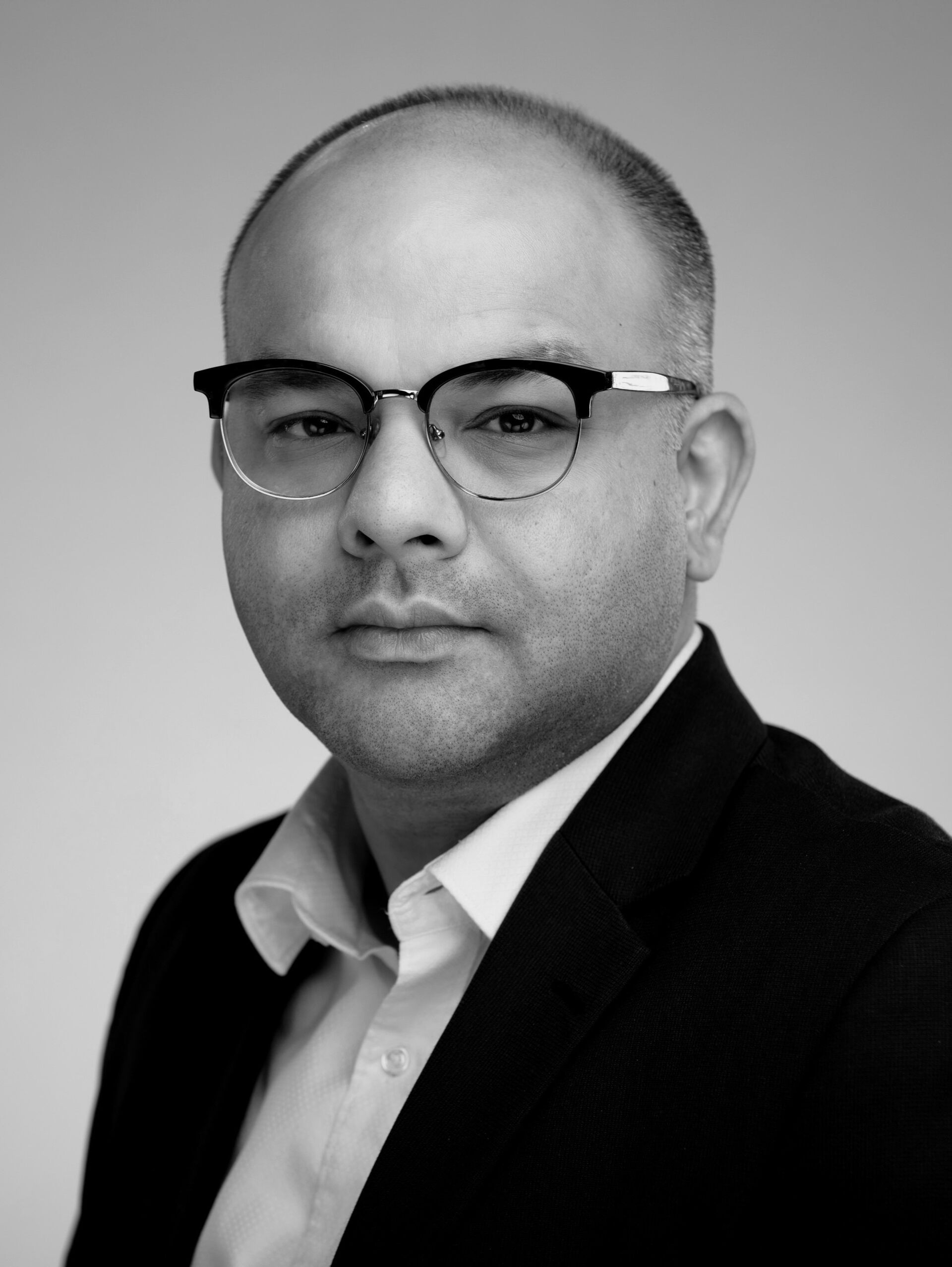
Rajiv K. Mishra is an assistant professor in residence at Northwestern University in Qatar (NUQ) having a joint appointment with the communication and liberal arts programs. He teaches Infrastructure Studies and Research Methods. He received his PhD in science, technology, and society studies (STS) from the Centre for Studies in Science Policy (CSSP), School of Social Sciences, Jawaharlal Nehru University (JNU), New Delhi. Having an multidisciplinary background in computer science, internet, sociology, science policy studies and STS, Rajiv’s research and teaching interest explores conceptual and methodological aspects of areas such as large technological systems and infrastructures; digital technologies and development; biometrics, databases, and governmentality; digital health and universal health coverage; digital state and welfare; frugality, tinkering, and alternative S&T (science & technology) spaces. More so, Rajiv has a keen interest in developing novel conceptual and methodological interventions to understand the dynamics between technology and society in Global South. To this end, to use innovative qualitative, ethnographic, and mixed methods approaches to understand everyday interaction of people/users with technology, technological systems, and infrastructures for accessing healthcare and the way they negotiate its challenges and uncertainties. In this direction, his focus on digital health infrastructures is both analytic and methodological entry points for his critical engagement with The Collective for the Political Determinants of Health.
His research publications can be found at his Google Scholar page
and ResearchGate page.
Suerie Moon
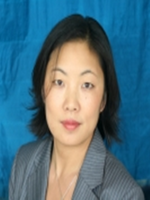 Suerie Moon, Professor of Practice; Co-Director, Global Health Centre, Graduate Institute of Geneva, focuses on global governance and health, with specialized expertise in innovation and access to medicines, outbreak preparedness and response; trade, investment and intellectual property rules; and development assistance. She is the Principal Investigator on five research projects, and the recipient of a career grant from the Swiss National Science Foundation. Her current research examines new business models of pharmaceutical R&D, international sharing of outbreak-prone pathogens and related benefits, and the global governance of Covid-19.
Suerie Moon, Professor of Practice; Co-Director, Global Health Centre, Graduate Institute of Geneva, focuses on global governance and health, with specialized expertise in innovation and access to medicines, outbreak preparedness and response; trade, investment and intellectual property rules; and development assistance. She is the Principal Investigator on five research projects, and the recipient of a career grant from the Swiss National Science Foundation. Her current research examines new business models of pharmaceutical R&D, international sharing of outbreak-prone pathogens and related benefits, and the global governance of Covid-19.
Prior to joining the Graduate Institute, she co-founded and led the Forum on Global Governance for Health, a focal point at Harvard for research, debate and strategic convening on issues at the intersection of global governance and health. She was also co-Director of the Project on Innovation and Access to Technologies for Sustainable Development at the Harvard Kennedy School of Government and Study Director of the Harvard-LSHTM Independent Panel on the Global Response to Ebola, as Lecturer on Global Health at the Harvard T.H. Chan School of Public Health.
Her work has appeared in leading academic journals, and she speaks regularly with media, at academic conferences, government and non-governmental meetings, and legislative hearings. She serves on expert advisory bodies, including the WHO Fair Pricing Advisory Group, Swiss National Covid-19 Science Taskforce, WHO ACT Accelerator Ethics & Governance Working Group, and the Board of the Drugs for Neglected Diseases initiative. She received her BA from Yale, MPA from Princeton, and PhD from Harvard.
James Pfeiffer
 James Pfeiffer PhD, MPH is currently Professor in the Department of Global health in the School of Public Health at the University of Washington, Seattle, with a joint appointment in the Department of Anthropology. Dr. Pfeiffer was also Executive Director of Health Alliance International (HAI) for 10 years where he oversaw public sector health system strengthening projects in Mozambique, Côte d’Ivoire, and Timor Leste. In 2022, HAI turned over all of its grants and projects to local NGOs that it had helped launch in its three focal countries. HAI continues in Seattle and the University of Washington as Health Advocacy International. Dr. Pfeiffer earned his PhD in Anthropology and his MPH at the University of California, Los Angeles. He has 30 years of research experience in medical anthropology and public health in Africa. He has worked extensively on reproductive and community health projects in Mozambique and has coordinated numerous program evaluations and operations research projects for Health Alliance International (HAI), a non-profit based in Seattle that is also a program Center in the Department of Global Health at UW. In his faculty positions at Case Western Reserve University and University of Washington, Dr. Pfeiffer has served as principal investigator on medical anthropology and public health research funded by the National Science Foundation, Wenner-Gren Foundation, and National Institutes of Health. Dr. Pfeiffer has expertise in implementation science, qualitative and mixed methods, epidemiology, and program evaluation.
James Pfeiffer PhD, MPH is currently Professor in the Department of Global health in the School of Public Health at the University of Washington, Seattle, with a joint appointment in the Department of Anthropology. Dr. Pfeiffer was also Executive Director of Health Alliance International (HAI) for 10 years where he oversaw public sector health system strengthening projects in Mozambique, Côte d’Ivoire, and Timor Leste. In 2022, HAI turned over all of its grants and projects to local NGOs that it had helped launch in its three focal countries. HAI continues in Seattle and the University of Washington as Health Advocacy International. Dr. Pfeiffer earned his PhD in Anthropology and his MPH at the University of California, Los Angeles. He has 30 years of research experience in medical anthropology and public health in Africa. He has worked extensively on reproductive and community health projects in Mozambique and has coordinated numerous program evaluations and operations research projects for Health Alliance International (HAI), a non-profit based in Seattle that is also a program Center in the Department of Global Health at UW. In his faculty positions at Case Western Reserve University and University of Washington, Dr. Pfeiffer has served as principal investigator on medical anthropology and public health research funded by the National Science Foundation, Wenner-Gren Foundation, and National Institutes of Health. Dr. Pfeiffer has expertise in implementation science, qualitative and mixed methods, epidemiology, and program evaluation.
Ruth Prince
 Ruth Prince is associate professor in medical anthropology at the University of Oslo. She is currently leading a European Research Council-funded Starting Grant project, ‘Universal Health Coverage and the Public Good in Africa: Anthropological Perspectives’, which studies relations between healthcare, welfare, the state, and citizenship in Africa. Earlier work explored the HIV/AIDS epidemic in east Africa, while recent research and publications focus on cancer, chronic disease and care, health insurance and medical markets in Kenya. She is currently studying Kenya’s experiments with universal health coverage. Read more about Ruth Prince's project here.
Ruth Prince is associate professor in medical anthropology at the University of Oslo. She is currently leading a European Research Council-funded Starting Grant project, ‘Universal Health Coverage and the Public Good in Africa: Anthropological Perspectives’, which studies relations between healthcare, welfare, the state, and citizenship in Africa. Earlier work explored the HIV/AIDS epidemic in east Africa, while recent research and publications focus on cancer, chronic disease and care, health insurance and medical markets in Kenya. She is currently studying Kenya’s experiments with universal health coverage. Read more about Ruth Prince's project here.
Antoine de Bengy Puyvallee
 Antoine de Bengy Puyvallée is a PhD candidate in International Relations at the University of Oslo’s Centre for Development and the Environment. His research focuses global cooperation to manage disease outbreaks, from Ebola to Covid-19. Specifically, he studies global public-private partnerships (PPPs) as a new form of hybrid international organizations and investigates how PPPs acquire and consolidate authority over time.
Antoine de Bengy Puyvallée is a PhD candidate in International Relations at the University of Oslo’s Centre for Development and the Environment. His research focuses global cooperation to manage disease outbreaks, from Ebola to Covid-19. Specifically, he studies global public-private partnerships (PPPs) as a new form of hybrid international organizations and investigates how PPPs acquire and consolidate authority over time.
Antoine has been the coordinator the Independent Panel on Global Governance for Health since 2018 and contributed to the organization of its international conferences in 2018 (#UHCPolitics) and 2019 (#Tek4HealthEquity). He is co-ordinator for The Collective.
Judit Rius Sanjuan
 Judith Rius Sanjuan has been the Director at the Department of Innovation, Access to Medicines and Health Technologies (IMT) at PAHO/WHO since November 2023. Ms. Rius Sanjuan is a lawyer and global policy expert on innovation and access to medicines with over 20 years of experience designing, managing and implementing strategies to promote the public interest. Her professional background includes experience in civil society, academia, the private sector, and most recently with the United Nations Development Programme (UNDP) in New York. She has worked for two of the leading civil society organizations on access to medicines, as staff attorney at Knowledge Ecology International (KEI), and as the U.S. manager of the Access Campaign for Doctors Without Borders/Médecins Sans Frontières (MSF). Beyond her work in international organizations and civil society, she has also made significant contributions to academia, and taught in graduate programs at The New School, Georgetown Law School, and the University Oberta of Catalunya. Ms. Rius Sanjuan has a Law Degree and a Master in International Relations from Pompeu Fabra University, and an LL.M. in Law, Science and Technology from Stanford Law School.
Judith Rius Sanjuan has been the Director at the Department of Innovation, Access to Medicines and Health Technologies (IMT) at PAHO/WHO since November 2023. Ms. Rius Sanjuan is a lawyer and global policy expert on innovation and access to medicines with over 20 years of experience designing, managing and implementing strategies to promote the public interest. Her professional background includes experience in civil society, academia, the private sector, and most recently with the United Nations Development Programme (UNDP) in New York. She has worked for two of the leading civil society organizations on access to medicines, as staff attorney at Knowledge Ecology International (KEI), and as the U.S. manager of the Access Campaign for Doctors Without Borders/Médecins Sans Frontières (MSF). Beyond her work in international organizations and civil society, she has also made significant contributions to academia, and taught in graduate programs at The New School, Georgetown Law School, and the University Oberta of Catalunya. Ms. Rius Sanjuan has a Law Degree and a Master in International Relations from Pompeu Fabra University, and an LL.M. in Law, Science and Technology from Stanford Law School.
Sidsel Roalkvam
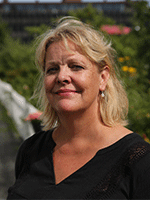 Sidsel Roalkvam is Centre Director at the Centre for Development and the Environment (SUM) at the University of Oslo and was one of the original members of the Lancet – University of Oslo Commission on Global Governance for Health.
Sidsel Roalkvam is Centre Director at the Centre for Development and the Environment (SUM) at the University of Oslo and was one of the original members of the Lancet – University of Oslo Commission on Global Governance for Health.
Remco van de Pas
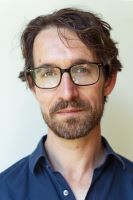
Expertise: global governance and global health, health systems, climate change, global public goods, health security, human rights, equity and democracy, EU foreign policy, World Health Organization.
Dr. Remco van de Pas is a public health doctor and a global health researcher. He has a position as senior research associate at the Centre for Planetary Health Policy in Berlin and is a lecturer in global health at the Institute of Tropical Medicine, Antwerp
His teaching and research focuses on global health governance, its political-economy and foreign policy with a special attention on health workforce development, health system strengthening, social protection and health financing, global health security, environmental determinants of health, globalization and its impact on equity.
Remco is a visiting research fellow at Clingendael, Netherlands Institute of International Relations and at Maastricht University. He is an editorial board member of the academic journal Globalization and Health, and a member of the international research collective for the Political Determinants of Health. He is active in the People’s Health Movement, a global civil society network.
He worked as health policy adviser for Wemos, a public health foundation advocating for social justice and health equity and as medical coordinator for the NGO Médecins du Monde, of which the largest part in West-Papua, Indonesia. Remco practiced medicine in mental health services for refugees and migrants in Rotterdam.
His PhD dissertation (2020) focused on global health policy and the international governance of health workforce and labor migration. An overview of academic and other publications can be found via ResearchGate.
Sanya Reid Smith
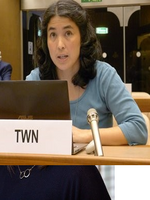 Sanya Reid Smith is a legal advisor and senior researcher at Third World Network where she analyses the implications of trade and investment agreements on various policies, including health, in developing and least developed countries. She looks at negotiations at the World Trade Organization, in free trade agreements and bilateral investment treaties. Third World Network is a grouping of organisations and individuals involved in development issues. Its international secretariat is in Malaysia and it has offices in various regions, including in Geneva where she works.
Sanya Reid Smith is a legal advisor and senior researcher at Third World Network where she analyses the implications of trade and investment agreements on various policies, including health, in developing and least developed countries. She looks at negotiations at the World Trade Organization, in free trade agreements and bilateral investment treaties. Third World Network is a grouping of organisations and individuals involved in development issues. Its international secretariat is in Malaysia and it has offices in various regions, including in Geneva where she works.
Katerini T. Storeng
 Katerini is a medical anthropologist whose research focuses on the social and political dynamics of the global health, particularly the of global public-private partnerships for health. She leads the Global Health Politics research group at the Centre for Development and the Environment, University of Oslo. Katerini is Co-Director of The Collective.
Katerini is a medical anthropologist whose research focuses on the social and political dynamics of the global health, particularly the of global public-private partnerships for health. She leads the Global Health Politics research group at the Centre for Development and the Environment, University of Oslo. Katerini is Co-Director of The Collective.
Jomo Kwame Sundaram

Jomo Kwame Sundaram is Senior Adviser, Khazanah Research Institute, Fellow, Academy of Science, Malaysia, and Emeritus Professor, University of Malaya. He was UN Assistant Secretary General for Economic Development, Assistant Director General, Food and Agriculture Organization (FAO), and convened the 2014 Second International Conference on Nutrition (ICN2) with the WHO in Rome. Jomo has authored and edited over a hundred books, written many academic papers, research reports and media articles, including several on the political economy of healthcare financing, malnutrition and Covid pandemic policy responses.
Alicia Ely Yamin

Alicia Ely Yamin JD MPH PhD is a Lecturer on Law and the Director of the Global Health and Rights Project at the Petrie-Flom Center for Health Law Policy, Biotechnology and Bioethics at Harvard Law School; Adjunct Senior Lecturer on Health Policy and Management at the Harvard TH Chan School of Public Health; and Senior Adviser on Human Rights and Health Policy at the global health justice organization, Partners In Health.
Known globally for her trans-disciplinary work in relation to economic and social rights, reproductive justice, the right to health, and the intersections between development paradigms and human rights, Yamin’s career has bridged academia and activism. She has lived in Latin America and East Africa for much of her professional life and worked with local advocacy organizations, including co-founding a program on health and human rights in the Asociación Pro Derechos Humanos (Lima, Peru; 1999).
Yamin was appointed by the UN Secretary General as one of ten international experts to the Independent Accountability Panel for Women's, Children's and Adolescents' Health in the Sustainable Development Goals (2016-2021). She was the chief consultant to the Office of the High Commissioner for Human Rights and drafter of the ‘Technical guidance on the application of a human-rights based approach to the implementation of policies and programmes to reduce preventable maternal morbidity and mortality, “ the first guidance on a ‘human rights-based approach to health’ to be adopted by the UN Human Rights Council. Yamin has served on numerous other UN, WHO and other global expert committees. She currently serves on WHO Global Advisory Group on Legislating Maternal Perinatal Death Surveillance and the Lancet Commission on Arctic and Northern Health.
Yamin regularly provides testimony and guidance to tribunals and legislative bodies around the globe, in relation to the application of international and comparative law to health and sexual and reproductive rights issues. In 2011, Yamin was named by the Colombian Constitutional Court as an Independent Expert on the implementation of T-760/08, a major structural judgment that led to significant health system reform In Colombia. She was also the only non-Kenyan appointed to the oversight committee for health matters of the Constitutional Implementation Commission in relation to the 2010 Kenyan Constitution.
From 2009-2015, Yamin served as Chair of the Board of the Center for Economic and Social Rights (Vice-Chair, 2001-08), and continues to serve on the Advisory Board. She is a current and founding member of the Global Health Law Consortium, as well as Senior Associated Researcher of the Centre on Law and Social Transformation. Yamin also sits on the Scientific Advisory Board of the Bergen Centre on Ethics and Priority Setting (B-CEPS), as well as on the international advisory boards of the RedAAS (Argentine Safe Abortion Access Network) and the Proyecto Mirar (monitoring implementation of Law 27.610, which legalized abortion in Argentina).
Yamin holds Juris Doctor and Master’s in Public Health degrees from Harvard University, and a Doctorate in Law from the University of Buenos Aires in Argentina. She has edited and authored over a dozen books and UN reports, as well as close to 200 articles in law, policy and public health/medical journals, in both English and Spanish. Her work has also been translated into French, Korean, Portuguese, and Estonian.
A revised and substantially expanded second edition of her most recent monograph, When Misfortune becomes Injustice: Evolving Human Rights Struggles for Health and Social Equality, was published by Stanford University Press in 2023.
Robert Yates
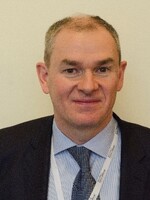 Robert Yates is a political health economist specializing in universal health coverage (UHC) and progressive health financing. He is Head of the Centre For Universal Health at Chatham House. He is also an Honorary Associate Professor at the London School of Hygiene and Tropical Medicine and a long-term consultant to The Elders on their UHC programme. His principal area of expertise is in the political economy of UHC, with a focus on advising political leaders and governments on how to plan, finance and implement national UHC reforms. He has previously worked as a Senior Health Economist with the UK’s Department for International Development (DFID) and the World Health Organisation, advising numerous governments in Asia, Africa and Europe on health financing policy and health systems reforms. He holds a BA degree in Natural Sciences and Economics from the University of Cambridge and a MBA, from the University of Leeds.
Robert Yates is a political health economist specializing in universal health coverage (UHC) and progressive health financing. He is Head of the Centre For Universal Health at Chatham House. He is also an Honorary Associate Professor at the London School of Hygiene and Tropical Medicine and a long-term consultant to The Elders on their UHC programme. His principal area of expertise is in the political economy of UHC, with a focus on advising political leaders and governments on how to plan, finance and implement national UHC reforms. He has previously worked as a Senior Health Economist with the UK’s Department for International Development (DFID) and the World Health Organisation, advising numerous governments in Asia, Africa and Europe on health financing policy and health systems reforms. He holds a BA degree in Natural Sciences and Economics from the University of Cambridge and a MBA, from the University of Leeds.
Sridhar Venkatapuram
 Dr Sridhar Venkatapuram is an Associate Professor at the Global Health Institute, King’s College London. He has been an academic-practitioner at the forefront of health ethics and global health for over 25 years. His current research projects cover topics including: the place of health in theories of social/global justice; the philosophical construction of a moral/human right to health; global justice and health inequalities; the ethics of addressing social determinants of health and social gradient in health; and the philosophy and ethics of health economics.
Dr Sridhar Venkatapuram is an Associate Professor at the Global Health Institute, King’s College London. He has been an academic-practitioner at the forefront of health ethics and global health for over 25 years. His current research projects cover topics including: the place of health in theories of social/global justice; the philosophical construction of a moral/human right to health; global justice and health inequalities; the ethics of addressing social determinants of health and social gradient in health; and the philosophy and ethics of health economics.
He has worked as a consultant for a range of international organizations including the Open Society Institute, the Population Council, and Doctors of the World-USA, the Health Foundation (UK), and World Health Organization (WHO). He gives lectures on the philosophy and ethics of health, health inequalities, and global health policy internationally.
Dr Venkatapuram was elected to the fellowship of the Royal Society of Arts and is honorary fellow of the UK Faculty of Public Health. He is also a Fellow and member of the Executive Committee of the Human Development-Capability Association. He recently spent one year in the Global Health Ethics Unit of the WHO in Geneva as the WHO drew on his idea of health as basic capabilities in their definition of healthy ageing.
He is currently working on various book projects that focus on the modern history and current issues in global health ethics, the philosophy of public health, and global health justice. An open access book he co-edited on COVID-19 pandemic, Vulnerable: The Policy, Law and Ethics of COVID-19 (Ottawa: University of Ottawa Press) was published in July 2020.
Dr Venkatapuram has a MPhil in Globalisation and a PhD in Political Philosophy from the University of Cambridge (2014 and 2019), a MSc in Population & International Health from Harvard University (2000), and a BA in International Relations from Brown University.
Felix Stein
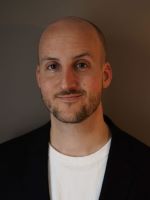 Dr Felix Stein is an economic anthropologist with a special interest in global health governance and development finance. He works at the Department of Anthropology at the University of Amsterdam, and the Centre for Development and the Environment at the University of Oslo. In Amsterdam he leads a five-year research project on the global reparations movements, comparing reparations made over pandemic outbreaks (for which he study cholera in Haiti) to reparations over climate change and toxic environments. In Oslo, he contributes to the research on public-private partnerships in global health and to the analysis of Scandinavian vaccine solidarity.
Dr Felix Stein is an economic anthropologist with a special interest in global health governance and development finance. He works at the Department of Anthropology at the University of Amsterdam, and the Centre for Development and the Environment at the University of Oslo. In Amsterdam he leads a five-year research project on the global reparations movements, comparing reparations made over pandemic outbreaks (for which he study cholera in Haiti) to reparations over climate change and toxic environments. In Oslo, he contributes to the research on public-private partnerships in global health and to the analysis of Scandinavian vaccine solidarity.
Tracey Wagner-Rizvi
 Tracey Wagner-Rizvi is Research Fellow at the University of Edinburgh. Her research examines themes relating to relating to non-State actors (NSAs), especially corporate actors, in governance and policy-making (particularly health policy), conflicts of interest, multistakeholderism, and the political and corporate determinants of health. She holds a PhD in Global Governance from the Balsillie School of International Affairs, University of Waterloo. She lived in Pakistan for 13 years where she worked for UNICEF, local and international non-governmental organizations, and a national newspaper. During that time, she campaigned for legislation to ban the marketing of infant formula and baby foods, and observed firsthand the industry’s influence on both national and global health policy.
Tracey Wagner-Rizvi is Research Fellow at the University of Edinburgh. Her research examines themes relating to relating to non-State actors (NSAs), especially corporate actors, in governance and policy-making (particularly health policy), conflicts of interest, multistakeholderism, and the political and corporate determinants of health. She holds a PhD in Global Governance from the Balsillie School of International Affairs, University of Waterloo. She lived in Pakistan for 13 years where she worked for UNICEF, local and international non-governmental organizations, and a national newspaper. During that time, she campaigned for legislation to ban the marketing of infant formula and baby foods, and observed firsthand the industry’s influence on both national and global health policy.
Owain Williams
 Dr Owain Williams is an Associate Professor in Global Political Economy and Health. He is Director of Global Political Economy programmes at Leeds. He has worked across Global Public Health, International Relations and Political Economy and has been at the forefront of developing interdisciplinary political economies of health. He has developed a range of work on the global political economy of health and food and their governance, and more recently on the COVID pandemic. His current focus in on the COVID pandemic and also expanding work on market power and oligopoly, and the role of trade, debt and austerity in shaping health and other social outcomes. Most of his work is with and on the Global South and on neoliberal capitalism. He has taught both in schools of public health and political science publishing in a dual track across social sciences and health related journals. His work includes some 60 papers and edited and co-authored books.
Dr Owain Williams is an Associate Professor in Global Political Economy and Health. He is Director of Global Political Economy programmes at Leeds. He has worked across Global Public Health, International Relations and Political Economy and has been at the forefront of developing interdisciplinary political economies of health. He has developed a range of work on the global political economy of health and food and their governance, and more recently on the COVID pandemic. His current focus in on the COVID pandemic and also expanding work on market power and oligopoly, and the role of trade, debt and austerity in shaping health and other social outcomes. Most of his work is with and on the Global South and on neoliberal capitalism. He has taught both in schools of public health and political science publishing in a dual track across social sciences and health related journals. His work includes some 60 papers and edited and co-authored books.
Meg Davis
 Professor Sara (Meg) Davis is the principal investigator of the Digital Health and Rights Project at the University of Warwick. She has over twenty years’ experience in global health and human rights as a scholar and practitioner, and is the author of two books, most recently The Uncounted: Politics of data in global health (Cambridge 2020). She earned her PhD at the University of Pennsylvania and held postdoctoral fellowships at Yale University and UCLA. She was China researcher at Human Rights Watch, and founding executive director of Asia Catalyst, which trained hundreds of community-based organizations on governance and human rights. At the Global Fund to Fight AIDS, TB and Malaria, Dr. Davis led early work to operationalise the Fund’s commitments on human rights. She has held visiting fellowships at New York University, Columbia University, and Fordham University and taught at the Geneva Centre for Humanitarian Studies, University of Alabama at Birmingham, Temple University, Yale University, and University of Pennsylvania. Her consulting clients have included UNDP, UNAIDS, IFRC, ICRC,, Global Fund Board delegations, and civil society networks. In 2017, she was one of three winners of the International Geneva Award.
Professor Sara (Meg) Davis is the principal investigator of the Digital Health and Rights Project at the University of Warwick. She has over twenty years’ experience in global health and human rights as a scholar and practitioner, and is the author of two books, most recently The Uncounted: Politics of data in global health (Cambridge 2020). She earned her PhD at the University of Pennsylvania and held postdoctoral fellowships at Yale University and UCLA. She was China researcher at Human Rights Watch, and founding executive director of Asia Catalyst, which trained hundreds of community-based organizations on governance and human rights. At the Global Fund to Fight AIDS, TB and Malaria, Dr. Davis led early work to operationalise the Fund’s commitments on human rights. She has held visiting fellowships at New York University, Columbia University, and Fordham University and taught at the Geneva Centre for Humanitarian Studies, University of Alabama at Birmingham, Temple University, Yale University, and University of Pennsylvania. Her consulting clients have included UNDP, UNAIDS, IFRC, ICRC,, Global Fund Board delegations, and civil society networks. In 2017, she was one of three winners of the International Geneva Award.
Aloysius Ssennyonjo
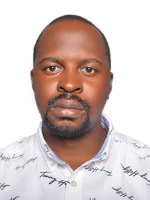 Dr. Aloysius Ssennyonjo is a Senior Lecturer at Makerere University School of Public Health with over 12 years of professional experience. He is interested in the critical analysis of complex health systems, policy, and broader development challenges. Dr Ssennyonjo is an interdisciplinary scholar whose work draws on public health, management science, political science, development studies, public administration and management, public policy, economics and organisation studies. He is particularly interested in political economy analysis focusing on the intersection of health, politics and development. Aloysius is also interested in the application of innovative research and evaluation methodologies that consider complex causality such as: critical realism, theory-driven evaluations (e.g. realist evaluation), process tracing, contribution analysis and social network analysis.
Dr. Aloysius Ssennyonjo is a Senior Lecturer at Makerere University School of Public Health with over 12 years of professional experience. He is interested in the critical analysis of complex health systems, policy, and broader development challenges. Dr Ssennyonjo is an interdisciplinary scholar whose work draws on public health, management science, political science, development studies, public administration and management, public policy, economics and organisation studies. He is particularly interested in political economy analysis focusing on the intersection of health, politics and development. Aloysius is also interested in the application of innovative research and evaluation methodologies that consider complex causality such as: critical realism, theory-driven evaluations (e.g. realist evaluation), process tracing, contribution analysis and social network analysis.
Dr Ssennyonjo’s professional experience includes leading and coordinating several research and capacity-building projects. He has consulted for several agencies, including the MOH, Enabel, World Bank, IntraHealth Uganda, RTI, WHO, UNFPA, Rutgers WPF, and Cordaid. Dr Ssennyonjo is also a founding member of Collective Action Uganda and a board member of several development initiatives/bodies.
Dr Ssennyonjo holds a PhD in Development Studies (University of Antwerp, Belgium). Using Uganda as a case study, his PhD examined the interaction of government politics, bureaucratic systems and the political economy of multisectoral coordination for universal health coverage within African government systems. He holds a Bachelor of Medicine and Bachelor of Surgery (Makerere University Kampala), an MSc. in Global Health and Public Policy (University of Edinburgh, UK), and a Postgraduate Diploma (first class) in Monitoring and Evaluation (M&E) (Uganda Management Institute). Aloysius has received several academic awards such as Best Student in Uganda, Uganda Certificate of Education (2003) & Uganda Advanced Certificate of Education (2005); Government of Uganda Undergraduate Scholarship; Commonwealth Shared Scholarship (University of Edinburgh); and Belgian Directorate for Development Co-operation PhD Scholarship (Institute of Tropical Medicine, Antwerp, Belgium).
Ben Hunter
 Ben Hunter is Lecturer in International Political Economy at the University of Glasgow. He works at the intersection of health and development, with a particular interest in issues of market formation in and around healthcare. This has included research projects on the commercial intermediaries operating within markets for healthcare provision and markets for healthcare training and recruitment; the corporatisation and consequent transformations taking place within private healthcare sectors; use of development aid and public-private partnerships to promote private provision of healthcare services; and the strategic efforts underway to position countries within a globalised commercial healthcare economy. Ben has drawn attention to the financialisation processes unfolding within national healthcare systems and the broader field of global health, and the challenge this poses for equitable access to healthcare services. His book, Investor States: Global Health at the End of Aid (2023, Cambridge University Press), charts recent trends wherein states operate as, with and for investors in the healthcare provision sectors of other nations, driving the expansion of corporate-oriented models for healthcare. Prior to joining the University of Glasgow, Ben worked at University of Sussex, King’s College London and as a researcher in the UK Parliament.
Ben Hunter is Lecturer in International Political Economy at the University of Glasgow. He works at the intersection of health and development, with a particular interest in issues of market formation in and around healthcare. This has included research projects on the commercial intermediaries operating within markets for healthcare provision and markets for healthcare training and recruitment; the corporatisation and consequent transformations taking place within private healthcare sectors; use of development aid and public-private partnerships to promote private provision of healthcare services; and the strategic efforts underway to position countries within a globalised commercial healthcare economy. Ben has drawn attention to the financialisation processes unfolding within national healthcare systems and the broader field of global health, and the challenge this poses for equitable access to healthcare services. His book, Investor States: Global Health at the End of Aid (2023, Cambridge University Press), charts recent trends wherein states operate as, with and for investors in the healthcare provision sectors of other nations, driving the expansion of corporate-oriented models for healthcare. Prior to joining the University of Glasgow, Ben worked at University of Sussex, King’s College London and as a researcher in the UK Parliament.
Jiwoo HA
 Jiwoo HA is a researcher at the Institute of Health & Environment, Seoul National University. His interests revolve around democracy, hegemonic struggle, health politics, health justice, and global health. His major theoretical frameworks include Republicanism (Philip Pettit) and Radical Democracy (Chantal Mouffe), which he aspires to further develop with a focus on health. His current research explores ‘Radicalization of Democracy towards Liberty, Equality and Health for All: an Analysis on Counter-Hegemonic Formation against Privatization in South Korea’, ‘Reimagining Civic Participation for Democratic Power Formation: Republicanism, Radical Democracy, and the People’, and ‘Can Health Promotion Facilitate Development in Fragile States?: An Instrumental Variable Estimation with Panel Data’. He received a BS and a BBA from Korea University and an MPH from Seoul National University.
Jiwoo HA is a researcher at the Institute of Health & Environment, Seoul National University. His interests revolve around democracy, hegemonic struggle, health politics, health justice, and global health. His major theoretical frameworks include Republicanism (Philip Pettit) and Radical Democracy (Chantal Mouffe), which he aspires to further develop with a focus on health. His current research explores ‘Radicalization of Democracy towards Liberty, Equality and Health for All: an Analysis on Counter-Hegemonic Formation against Privatization in South Korea’, ‘Reimagining Civic Participation for Democratic Power Formation: Republicanism, Radical Democracy, and the People’, and ‘Can Health Promotion Facilitate Development in Fragile States?: An Instrumental Variable Estimation with Panel Data’. He received a BS and a BBA from Korea University and an MPH from Seoul National University.
Els Torreele
 Dr Els Torreele is the Founding Director of æqua, a recently created Think Tank on Equity and Economic Justice for Health. She’s a global health and medical innovation expert, working to re-think the global pharmaceutical R&D and manufacturing ecosystem to prioritize people’s health needs and ensure equitable access to knowledge and technologies where and when needed.
Dr Els Torreele is the Founding Director of æqua, a recently created Think Tank on Equity and Economic Justice for Health. She’s a global health and medical innovation expert, working to re-think the global pharmaceutical R&D and manufacturing ecosystem to prioritize people’s health needs and ensure equitable access to knowledge and technologies where and when needed.
A Bio-Engineer and PhD from Brussels University (VUB), for over 20 years she has combined scientific research, pharmaceutical R&D, policy analysis and research, and advocacy at Brussels University, Médecins Sans Frontières, Drugs for Neglected Diseases initiative, and Open Society Foundations. Since 2020, she’s independent researcher and advisor including working with Rt. Hon. Helen Clark and other former members of the Independent Panel for Pandemic Preparedness and Response and with the WHO Council on the Economics of Health for All, chaired by Mariana Mazzucato. She is a Visiting Policy Fellow at the Institute for Innovation and Public Purpose, University College London, and a member of the WHO Technical Advisory Group on Vaccine Market Information for Access. A recent Rockefeller Bellagio Centre resident, she’s also an Honorary Science Fellow at the VUB, and author on over 50 international journal publications including in the Lancet, BMJ, Nature, and Vaccines, and a regular speaker at international conferences and contributor to the societal debate around medical innovation and access through media and social media.
Zahra Zeinali
 Dr. Zahra Zeinali is a medical doctor and global health scholar from Iran. She obtained her MD from the Iran University of Medical Sciences, her MPH from the Johns Hopkins Bloomberg School of Public Health, and has started pursuing a Doctor of Global Health Leadership and Practice degree at the University of Washington in 2022.
Dr. Zahra Zeinali is a medical doctor and global health scholar from Iran. She obtained her MD from the Iran University of Medical Sciences, her MPH from the Johns Hopkins Bloomberg School of Public Health, and has started pursuing a Doctor of Global Health Leadership and Practice degree at the University of Washington in 2022.
Zahra brings over seven years of global public health experience at the local, national, and international levels, starting with her co-founding the Iranian Medical Students’ Association and leadership in the International Federation of Medical Students’ Associations, where she led MENA region medical student associations and represented medical students in international multistakeholder events for a such as the World Health Assembly. She also brings a wealth of experience working at the interface of evidence and policy, particularly around health workforce planning and gender transformative leadership in health systems. She has been part of multiple international research initiatives, including the Rockefeller Foundation-Boston University 3-D Commission on Health Determinants, Data and Decision Making, and the Global Health 50/50 research initiative. She is also on the editorial board of the Journal of Health Equity and an editor for PLoS Global Public Health. She has been recognized for her work as an Emerging Voice for Global Health by Health Systems Global in 2020. She is now a board member at the Emerging Voices for Global Health.
Her research focuses on creating conditions conducive to achieving health and well-being for people by leveraging policy mechanisms that impact the social and structural determinants of health with a strong intersectional gender lens.
Joseph Harris
 Joseph Harris is an Associate Professor of Sociology at Boston University. He conducts comparative historical research that lies at the intersection of sociology, political science, and global health. His work explores the politics of healthcare access, infectious disease response, and global health governance. At BU, he founded and directs the Global Health Politics Workshop and is a Core Faculty Member in the Center for Emerging Infectious Diseases. He is author of Achieving Access: Professional Movements and the Politics of Health Universalism (Cornell University Press, 2017). He is Vice Chair of the International Studies Association’s Global Health Section, Deputy Editor of the Journal of Health and Social Behavior, and is a member of the Editorial Board at Studies in Comparative International Development and an Advisory Editor at Social Science and Medicine. He is co-founder of the American Sociological Association’s Global Health and Development Interest Group, a past member of the governing Council of the ASA Section on the Sociology of Development, and past Associate Editor at Social Science and Medicine. He has received two Fulbright scholarships for his research on the politics of health policy in Thailand. He received his doctorate in Sociology from the University of Wisconsin-Madison and holds a Master’s in Public Affairs from Princeton’s Woodrow Wilson School of Public and International Affairs. His research and commentary has appeared in such high-profile media outlets as National Public Radio, the Washington Post, U.S. News and World Report, and The Progressive magazine. In 2017, he received the Gitner Award for Distinguished Teaching, the College of Arts and Science’s highest teaching award.
Joseph Harris is an Associate Professor of Sociology at Boston University. He conducts comparative historical research that lies at the intersection of sociology, political science, and global health. His work explores the politics of healthcare access, infectious disease response, and global health governance. At BU, he founded and directs the Global Health Politics Workshop and is a Core Faculty Member in the Center for Emerging Infectious Diseases. He is author of Achieving Access: Professional Movements and the Politics of Health Universalism (Cornell University Press, 2017). He is Vice Chair of the International Studies Association’s Global Health Section, Deputy Editor of the Journal of Health and Social Behavior, and is a member of the Editorial Board at Studies in Comparative International Development and an Advisory Editor at Social Science and Medicine. He is co-founder of the American Sociological Association’s Global Health and Development Interest Group, a past member of the governing Council of the ASA Section on the Sociology of Development, and past Associate Editor at Social Science and Medicine. He has received two Fulbright scholarships for his research on the politics of health policy in Thailand. He received his doctorate in Sociology from the University of Wisconsin-Madison and holds a Master’s in Public Affairs from Princeton’s Woodrow Wilson School of Public and International Affairs. His research and commentary has appeared in such high-profile media outlets as National Public Radio, the Washington Post, U.S. News and World Report, and The Progressive magazine. In 2017, he received the Gitner Award for Distinguished Teaching, the College of Arts and Science’s highest teaching award.
Jin-Hwan Kim
 Dr Jin-Hwan Kim is a health system researcher based in South Korea, where he has pursued both his medical and academic training. Dr Kim completed his MSc in Health Policy and Management and later earned a PhD in Health Policy at the same institution. His research primarily examines health policy and system evaluation with a strong emphasis on equity and implementation. By drawing on South Korea's experiences, Dr Kim seeks to inform the development of health systems globally. He currently serves as a Research Professor at Seoul National University and holds a postdoctoral research fellowship awarded by the National Research Foundation of Korea. You can find a list of his publication and related scholarly works at his homepage, and request information from him via e-mail.
Dr Jin-Hwan Kim is a health system researcher based in South Korea, where he has pursued both his medical and academic training. Dr Kim completed his MSc in Health Policy and Management and later earned a PhD in Health Policy at the same institution. His research primarily examines health policy and system evaluation with a strong emphasis on equity and implementation. By drawing on South Korea's experiences, Dr Kim seeks to inform the development of health systems globally. He currently serves as a Research Professor at Seoul National University and holds a postdoctoral research fellowship awarded by the National Research Foundation of Korea. You can find a list of his publication and related scholarly works at his homepage, and request information from him via e-mail.
Gianna Gayle Amul
 Gianna Gayle Amul, PhD Gayle has a PhD in Global Health (2024) from the University of Geneva's Institute of Global Health, Faculty of Medicine. She holds an MSc in Asian Studies (2012) and a BA in Political Science (2007). Gayle was Senior Policy Researcher and Director for Communications at Research For Impact Singapore from October 2020 to March 2023. She was a Research Associate at the Lee Kuan Yew School of Public Policy from September 2015 to September 2020. She was part of the team that developed the ASEAN Secretariat's 2015 report on the ASEAN Socio-Cultural Community Scorecard. She was also a Senior Analyst on health and climate security at the Centre for Non-Traditional Security (NTS) Studies in Singapore from 2012-2015. She has three years of teaching experience in the Philippines and Singapore. She started her research career with research projects on the MDGs, human security, and ASEAN integration. She has written and co-authored journal articles on tobacco control and alcohol control in the Asia and the Pacific Policy Studies, International Journal of Health Policy and Management, Global Health Governance Journal, the Journal of Studies on Alcohol and Drugs, Frontiers in Political Science, Frontiers in Public Health, International Journal of Public Health, and the International Journal of Alcohol and Drug Research. She has also published commentaries in the Lancet and Lancet Global Health. She is a collaborator in the Global Burden of Disease Study led by the Institute of Health Metrics and Evaluation. She is affiliated with the School of Government at the Ateneo de Manila University (Philippines) as a Non-Resident Research Fellow. She serves on the Editorial Board of Globalization and Health. She also volunteers as Secretary of the Asia Pacific Alcohol Policy Alliance and serves on the Board of the Global Alcohol Policy Alliance.
Gianna Gayle Amul, PhD Gayle has a PhD in Global Health (2024) from the University of Geneva's Institute of Global Health, Faculty of Medicine. She holds an MSc in Asian Studies (2012) and a BA in Political Science (2007). Gayle was Senior Policy Researcher and Director for Communications at Research For Impact Singapore from October 2020 to March 2023. She was a Research Associate at the Lee Kuan Yew School of Public Policy from September 2015 to September 2020. She was part of the team that developed the ASEAN Secretariat's 2015 report on the ASEAN Socio-Cultural Community Scorecard. She was also a Senior Analyst on health and climate security at the Centre for Non-Traditional Security (NTS) Studies in Singapore from 2012-2015. She has three years of teaching experience in the Philippines and Singapore. She started her research career with research projects on the MDGs, human security, and ASEAN integration. She has written and co-authored journal articles on tobacco control and alcohol control in the Asia and the Pacific Policy Studies, International Journal of Health Policy and Management, Global Health Governance Journal, the Journal of Studies on Alcohol and Drugs, Frontiers in Political Science, Frontiers in Public Health, International Journal of Public Health, and the International Journal of Alcohol and Drug Research. She has also published commentaries in the Lancet and Lancet Global Health. She is a collaborator in the Global Burden of Disease Study led by the Institute of Health Metrics and Evaluation. She is affiliated with the School of Government at the Ateneo de Manila University (Philippines) as a Non-Resident Research Fellow. She serves on the Editorial Board of Globalization and Health. She also volunteers as Secretary of the Asia Pacific Alcohol Policy Alliance and serves on the Board of the Global Alcohol Policy Alliance.
Lauren Paremoer
 Lauren Paremoer is a staff member of the Political Studies Department at the University of Cape Town and a member of People’s Health Movement (PHM) South Africa. She also serves as PHM's Global Steering Council representative for the Democratising Global Health Governance programme. Her research focuses on health activism, global governance for health, and political mobilisation aimed at realising social citizenship in societies of the Global South. She has explored these themes in relation to the struggle for the right to HIV/AIDS treatment in South Africa, the social reproduction work undertaken by community health workers and women more generally, and the use of for-profit markets and philanthrocapitalism to ameliorate the worst effects of deteriorating public health systems.
Lauren Paremoer is a staff member of the Political Studies Department at the University of Cape Town and a member of People’s Health Movement (PHM) South Africa. She also serves as PHM's Global Steering Council representative for the Democratising Global Health Governance programme. Her research focuses on health activism, global governance for health, and political mobilisation aimed at realising social citizenship in societies of the Global South. She has explored these themes in relation to the struggle for the right to HIV/AIDS treatment in South Africa, the social reproduction work undertaken by community health workers and women more generally, and the use of for-profit markets and philanthrocapitalism to ameliorate the worst effects of deteriorating public health systems.
